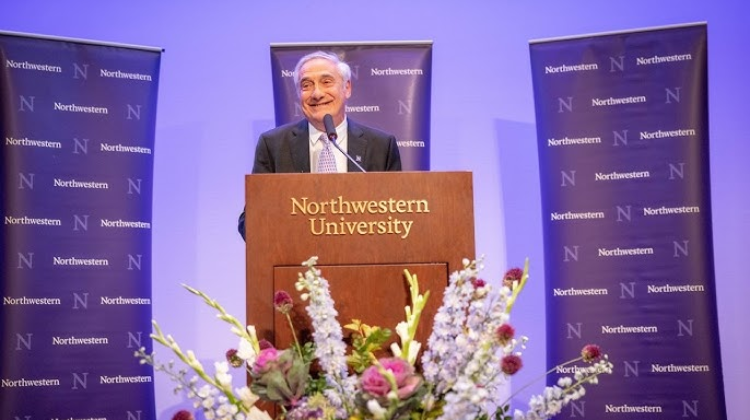A timely Nobel winner
Eye on the prize

It was a great and pleasant surprise to me that one of the Nobel prize winners in economics (okay, it's not an actual Nobel, but...) this year is a colleague who works on economic history. Professor Joel Mokyr, whom you may also see in the Dutch news because he was born in Leiden, teaches at Northwestern University, one of my alma maters. Joel has done extensive, and in hindsight prize-winning, research on the importance of technology and scientific inquiry on economic development in the past. I taught a course that featured his book on the role of culture in stimulating growth; you can read more about him and his work from the Nobel Prize committee.
Besides being a fillip for my discipline (i.e., not many economic historians win the economics prize), it was also timely. Technology and innovation are cornerstones of economic growth, and arguably as important as the factor inputs (e.g., capital and labor) used in production and the institutions that shape the way economies function (which incidentally was the research that won last year's prize). In multiple courses that I teach, I emphasize how technology, unlike material items or time, is special because once it is discovered, it does not deplete with use: a theory of relativity or better-designed mousetrap, with small caveats, can be used by anyone and they do not go away. This quality is called non-rivalry, and it is what makes technology so powerful.
That is why it is highly ironic that many countries, including the United States and the Netherlands, where Joel and I are respectively based, are cutting funding to higher education – why are they killing the gold-laying geese? Whereas earlier growth models did not specify how or from where technology comes, newer ones have technology powered by human brains (NB: both types of models were pioneered by, you guessed, Nobel prize winners). In academic jargon, technology is endogenous to labor. With less human capital being accumulated over time, less technology is created, and not only do the countries that would have produced these great minds lose, but also the rest of the world (ahem, non-rivalry). Note that reducing funding for education and discouraging (skilled) migration, which is something both the US and the Netherlands are doing, have similar effects on technological progress, so this is doubly concerning for our economies.
Of course, there are those who would argue that maybe economic growth is not actually good, as it consumes scarce resources and creates competition and inequality. I get that. But some of the loudest voices on the side of degrowth are also those who already live in a world of abundance, in contrast to most of humanity. Are we willing to give some of our riches to those who have little to none and would love the opportunity to grow themselves? Oh wait, we are also cutting foreign aid to developing countries. I guess we are not.
Under all the arguments for or against growth is still a belief that a good life is attainable and desirable, whatever form that would take. What Joel and other researchers show is how we can get there, how knowledge can be useful (some of it may not be) and under what conditions do minds bloom. Maybe this is a reminder to our politicians that we should continue to invest in each other, in people, and to generate benefits the rest of the world can enjoy as well. Congratulations Joel!
Comments
We appreciate relevant and respectful responses. Responding to DUB can be done by logging into the site. You can do so by creating a DUB account or by using your Solis ID. Comments that do not comply with our game rules will be deleted. Please read our response policy before responding.